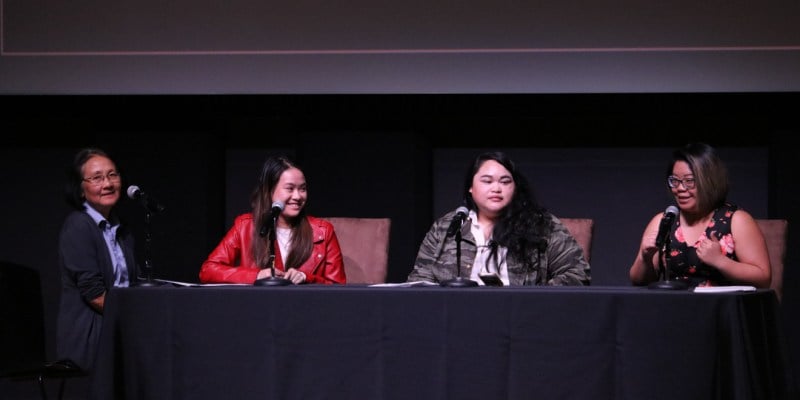Over 400 people attended this year’s Listen to the Silence (LTS) summit, a conference focused on issues facing the Asian American community, on Saturday. Hosted by The Stanford Asian American Student Association (AASA), this year’s conference focused on leaving its attendees with tangible ways to enact change in their communities. Now in its twenty-fourth year, LTS is one of the largest college Asian American conferences in the United States.
A day-long event featuring speakers, panelists, workshops and a concert, LTS brings together undergraduate students, high schoolers, community organizations and educators. This year’s LTS was themed “Avenues to Activism: A Collective Call to Action” and drew students from UC San Diego, UC Santa Cruz, Santa Clara University, other universities and local high schools.
The conference was held in Cubberley Auditorium. Keynote speaker Mai Yang Vang, a Sacramento native, member of the Sacramento School Board and co-founder of Hmong Innovating Politics (HIP), started the event with a speech about being raised in poverty and how the experience shaped her eagerness to attend college.
“My teacher told me that college was my one ticket out of poverty, so I said, ‘Alright, let’s go,’” she said.
After a discussion of college, Vang gave advice stemming from her career as a school board member. She encouraged listeners to embrace all forms of activism, no matter how small they may seem.
“The revolution really starts at home around the dinner table,” she said. “Calling out your uncle when he says something anti-Black or anti-gay — that’s a form of activism.”
During her speech, Vang commented on LTS’ growth since she first attended the event 11 years ago, when only around 30 or 40 students were present.
“I think it’s really important to get students from all over the place in a common meeting space where we can learn from each other and the work we do on our respective campuses,” said AASA co-chair Catherine Gao. “It’s also been really great to bring high school students to this conference, where they can get connected to a wide range of organizations.”
The event focused on activism through an intersectional lens and addressed diverse issues in workshops. UCSD student Ivy Yang attended a workshop on the intersection of Asian and LGBTQ+ activism.
“When I heard of connecting LGBTQ+ and Asian activism together I was really excited,” she said.
Another UCSD student, Linh Anh-Cook, mentioned that activism is a really big part of her life, saying that LTS is “something I’ve wanted to come to for a while.”
Workshops focused on a wide range of topics, from the Tibetan freedom movement to wage theft in the San Francisco Chinese immigrant community. After three rounds of workshops and a panel of speakers, the day culminated in a concert featuring some of Stanford’s Asian arts groups, such as O-Tone and Raagapella.
“We start planning beginning of fall quarter,” Gao said. “There are people in charge of finding speakers, organizing workshops, coordinating room and board and figuring out the concert line-up.”
AASA intern Kendall Matsumoto ’22 read applications for the conference workshops and decided who would attend which workshops and when.
“There was a lot of consideration over representation since that is something important to the mission of LTS,” she said.
“You don’t have to be marching everyday to be an activist,” she added. “You can find other ways to engage in community and grassroots efforts and make just as much change.”
Contact Miriam Wallstrom at mewla ‘at’ stanford.edu.
